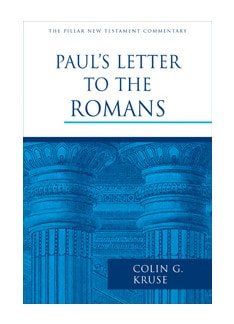The errors of Arminianism have prevailed in western Christianity over the last hundred years or more. Inevitably these errors have been carried to the mission fields. The theological renewal since the 1960s has seen a recovery of the Reformed faith. However, in this recovery a small minority have fallen into hyper-Calvinism.
A stable doctrine
A most important legacy from the Puritans is a stable doctrine of divine sovereignty and human responsibility. The Puritans were well versed in the debate over Arminianism, which took place at the Synod of Dort 1618-1619 in the city of Dordrecht, in the Netherlands. William Laud (1573-1645), who was Archbishop of Canterbury from 1633, was the arch-promoter of Arminianism. It is not surprising, therefore, that from about that date the Puritans were put to the test as far as Arminianism is concerned.
In our generation a decisive book in the Puritan tradition has been Evangelism and the Sovereignty of God by J. I. Packer which has been widely used to preserve the Reformed movement from hyper-Calvinism. Packer uses the term ‘antinomy’ (meaning ‘opposing principles’) to describe a pair of seemingly contradictory concepts which are not, in fact, contradictory but fully compatible.
He uses the analogy of light. As light behaves sometimes as waves and sometimes as particles, in a way which is inexplicable to human reason, so divine sovereignty and human responsibility exist together in a way which can only be held by faith (Isaiah 55:8-9). The human rationality of the hyper-Calvinist insists on explanations, and this insistence drives him to unbiblical conclusions. If we are to remain biblical, divine sovereignty in salvation and human responsibility must be held together, as balancing truths that provide stability. Such a view will prevent wrong conclusions and misguided practice, which can easily destabilise the truth of the gospel.
Wrong conclusions
The first set of wrong conclusions concerns the nature of man as a consequence of the Fall. Does man have free will toward God, or is he crippled by his enmity to God and his law? If he is crippled, is he still fully responsible for his attitudes and actions?
The second set of wrong conclusions concerns the sovereignty of God. Does not God’s sovereignty in salvation lead inevitably to a fatalistic mind-set? The reasoning here is that if God is sovereign, there is nothing for man to do (man has no responsibility). Also, if God is sovereign, and he alone decides the issue of salvation, does that mean his love is limited to the elect, or does he love all mankind? Does his sovereign purpose to save only some, mean that he is insincere in offering the gospel freely to all sinners indiscriminately?
Let us see how the Puritans answered these questions.

Free will
The Puritan doctrine of salvation by grace is enshrined in The Westminster Confession of Faith and is paralleled in The London Baptist 1689 Confession of Faith. A number of chapters in the former are relevant, particularly those devoted to salvation, free will (chapter 9), the redemption God bestows by grace (chapters 10-14), and the ‘graces’ exercised by man (chapters 14 to 17). In these chapters we see the necessity of divine intervention to save fallen man but, at the same time, that the fall into sin does not annul human responsibility.
The Westminster Confession devotes a chapter to free will. This was a central issue in the Reformation. Responding to Erasmus, who promoted the idea that man is free to choose in matters of salvation, Martin Luther wrote a book entitled The Bondage of the Will. Luther asserted that ‘free will’ was the hinge on which turned the whole controversy about the source of salvation.
That is as true today as it was then. Packer considered Luther’s The Bondage of the Will to be the classic elucidation of what the Reformation conflict was all about. B. B. Warfield called it ‘the manifesto of the Reformation’.
Saved by grace
The Arminian believes that salvation is decided by the free will of man and not by the sovereign grace of God. In other words, salvation is of man and not of God. However, the Scripture makes it clear that we are saved by grace and not by anything that proceeds from ourselves (Ephesians 2:8-9).
The Westminster Confession, chapter 9, reminds us that our first parents possessed free will but also the ability to fall into sin. As a consequence of the Fall, man plunged into the bondage and slavery of sin. This bondage is now the state of his will, a will ruled by the sinful disposition of his heart.
Through regeneration and conversion, a man is made free in his will but not entirely so. The Confession cites Romans 7 as a reminder of the conflict that continues in the believer. The fifth paragraph declares, ‘It is not until man enters the state of glory that he is made perfectly and immutably free to will that which is good, and that alone’.
In the introduction to a new translation of Luther’s The Bondage of the Will in 1957, J. I. Packer and O. R. Johnston wrote as follows. ‘To accept the principles which Martin Luther vindicates in The Bondage of the Will would certainly involve a mental and spiritual revolution for many Christians at the present time. It would involve a radically different approach to preaching and the practice of evangelism, and to most other departments of theology and pastoral work as well. God-centred thinking is out of fashion today, and its recovery will involve something of a Copernician revolution in our outlook on many matters’.
Easy believism
Is this an exaggeration? No, because wrong doctrine leads to erroneous practice. From a correct or erroneous view of man’s ability in the matter of salvation proceeds either a correct or erroneous method of gospel preaching, together with right or wrong practices in the churches.
When we bypass the reality of sin and its radical effects on the whole man, the idea takes over that the new birth can be brought about simply by making ‘a decision for Christ’. This has rightly been called ‘easy believism’. Repentance for sin is sidelined, and all who make a decision are pronounced ‘saved’.
Sadly, but inevitably, this proves premature. False converts are the outcome. The theory of the ‘carnal Christian’ has been invented to accommodate the common phenomenon of ‘converts’ who have made a decision but who bear no marks of the new birth. Kent Philpott’s powerful contemporary book Are You Really Born Again? describes, with many examples, the damage done by misguided evangelistic methods, which stem from an inadequate view of man in sin.
The ‘altar call’ is the device most commonly used to exert psychological pressure to induce decisions. This leads to the back door of some churches being as large as the front door! Many come in and make decisions, yet are not changed, not born again, and leave by the back door, disillusioned.
Wrong thinking
The second set of wrong conclusions involves muddled thinking about the sovereignty of God. The areas which need clarification are fatalism, the free offer of the gospel, and the extent of his love toward mankind.
Firstly, with regard to fatalism, the Puritans countered this mind-set by concentrating on what we call ‘the means of grace’. The Confession teaches that saving faith is imparted to sinners by the Holy Spirit through the preaching of the Word; that is, the Spirit uses means to bring about his sovereign purpose, and those means involve human activity. The book of Acts testifies how the church grew and spread through the active efforts of the apostles and believers. Organised evangelism and enterprise in missions is the responsibility of every church, and without such effort there will be no growth. A sovereign God achieves his purpose through the work of his people.
Furthermore, sinners also have a responsibility. God commands all people everywhere to repent, and commands them to believe in the name of his Son, Jesus Christ (Acts 17:30; 1 John 3:23). Richard Greenhill describes the responsibilities of the unconverted person in a sermon entitled. ‘What must and can persons do toward their own conversion?’
Greenhill takes as his text Ezekiel 18:32: ‘Wherefore turn yourselves, and live ye’. The unconverted, he said, should seek to sit under a powerful gospel ministry; they should listen to the voice of God’s judgements; and they should observe the difference the gospel has made in the lives of Christians. Greenhill then presses what the unconverted person must do. He must turn to Christ. He must strive to enter in at the narrow gate.
Plain and direct
Secondly, with regard to the free offer of the gospel, the Puritans were not inhibited in the way they addressed the unconverted. Examples are Richard Baxter’s A Call to the Unconverted and Joseph Alleine’s An Alarm to the Unconverted. Baxter’s work is a classic and has been transposed into modern English by John Blanchard.
The Puritans regarded all preaching as evangelistic, sometimes more and sometimes less, depending on the subject in hand. ‘The Lord Jesus Christ’, said Robert Bolton, ‘is offered most freely, and without exception of any person, every Sabbath, every sermon, either in plain, and direct terms, or implied, at the least’.
John Flavel’s 265-page exposition of Revelation 3:20 well illustrates the unction of the Puritans in pressing home the gospel to all without exception. Sinners should be invited to come to Christ (Matthew 11:27-28), reasoned with ( Isaiah 1:18-20), persevered with (Romans 10:21), warned (Luke 13:5), and implored to be reconciled to God (2 Corinthians 5:20).
In the Puritan tradition, George Whitefield wonderfully exemplified in his preaching a stable understanding of divine sovereignty and human responsibility. He used to place lost sinners in a vice. He pressed home the necessity of repentance. But the lost sinner is a slave. He cannot repent. Yet to be saved he must repent. He cannot. He must. His only recourse is to look away from himself to the One who can save. His escape route is cut off. There is no help in himself. His only hope is to call on God for mercy. And a God of mercy will never cast out those who come to him in faith.
God’s love
Thirdly there is the question of God’s love. If God only loves the elect and only hates the non-elect, what constraint is there for the sinner to turn and believe? Richard Baxter in his Call to the Unconverted drives home the strong language and reasoning used by the sovereign Lord, as expressed in Ezekiel 18. He has no pleasure in the wicked that he should die, but rather that the wicked person should turn from his wicked way and live. Our Lord made it clear that we are to love our enemies because God looks upon them with kindness (Luke 6:35). The love of God for all mankind, even the most terrible sinners, is well expressed by the Puritan John Howe in his sermon, ‘The Redeemer’s tears shed over lost souls’.
Clearly, God’s redeeming love for the elect goes beyond the ‘loving-kindness’ he displays to all men. But the Bible teaches clearly that God regards all his creatures with compassion and concern.
Conclusion
The Puritans were blessed with a stable doctrine of divine sovereignty and human responsibility. This enabled them to persevere in their work, knowing that in spite of discouragement, a harvest would be reaped. We too need a stable doctrine in which we trust in God’s sovereign power to give the increase. In our time, most people seem impervious to the gospel, but this only emphasises the fact that persevering labour is imperative. Like the sower in the parable (Luke 8:1-15) we must sow the seed, knowing that there will be a harvest in due course.


















